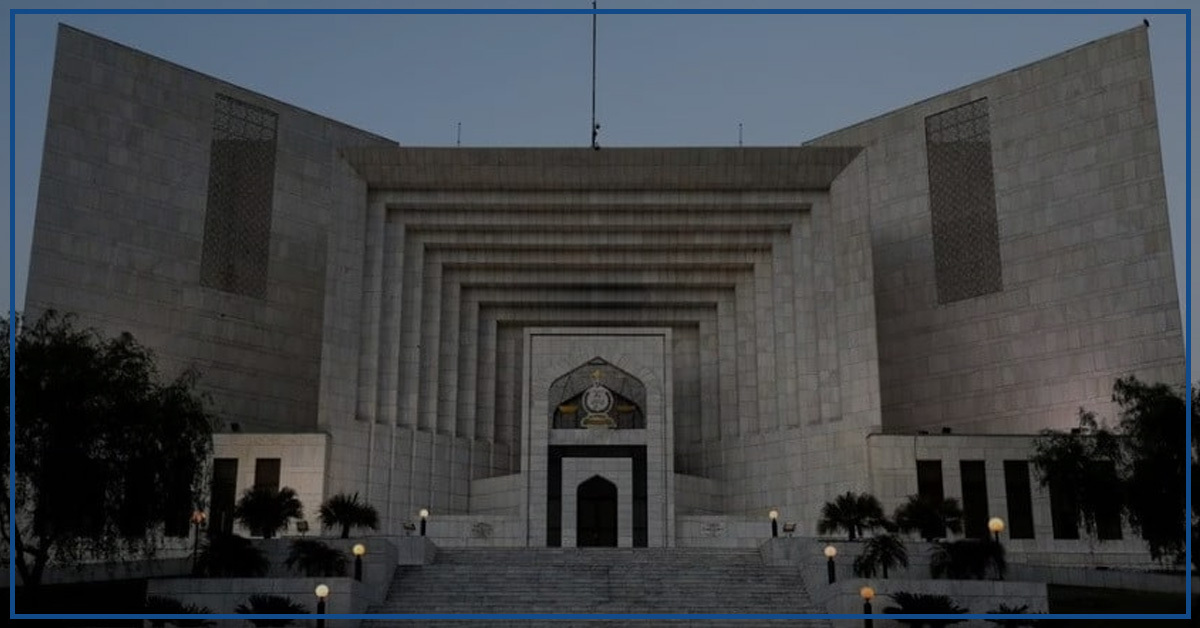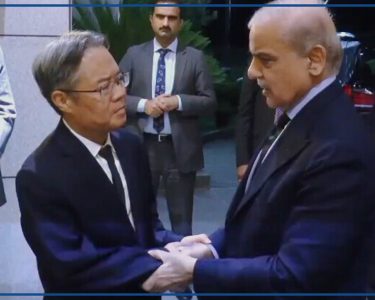In a groundbreaking verdict, Pakistan’s Supreme Court, led by a five-judge panel, has declared military trials of civilians arrested in connection with the violent May 9 protests null and void.
This verdict comes after extensive hearings held since June, sparking critical conversations about civilian rights, the military’s role in the justice system, and the sanctity of the Constitution.
The panel, chaired by Justice Ijazul Ahsan, alongside Justices Munib Akhtar, Yayha Afridi, Sayyed Mazahar Ali Akbar Naqvi, and Ayesha A. Malik, ruled in a 4-1 majority decision that suspects detained in the aftermath of the May 9 demonstrations should face trial in regular civilian courts.
Justice Afridi was the sole dissenter, disagreeing with the majority’s ruling.
Furthermore, the court has found Section 2(1)(d) of the Army Act, outlining who falls under military jurisdiction, as unconstitutional, along with Section 59(4), dealing with civil offenses. This pivotal decision underscores the need to try cases based on the nature of the crime.
It is essential to note that the verdict can still be appealed by the state, ensuring a fair and transparent legal process in this complex matter.
The petitions leading to this momentous judgment were filed by various parties, including Aitzaz Ahsan, who addressed the media after the verdict.

Ahsan emphasized the verdict’s significance in upholding democratic values, the Constitution, and the justice system, reinforcing the principle that no entity is above the law. He commended the Supreme Court for its impartial stance.
Legal experts have lauded the verdict, highlighting the established principle that civilian trials should be conducted in civilian courts as long as they are operational. This decision is viewed as a positive development for the Constitution and fundamental rights, further solidifying the role of civilian courts in the judicial process.
During the hearings, the Attorney General for Pakistan, Mansoor Usman Awan, defended the military trials, but the court’s decision underscores a commitment to preserving the fundamental rights of citizens, especially in cases where a direct link to the armed forces is not evident.
The background of this case traces back to the wave of violence on May 9, which targeted both civilian and military installations, leading to the arrest of 102 individuals.
The court’s decision to nullify military trials in this context emphasizes the significance of due process and civilian authority.
With this ruling, it is expected that civilian institutions will gain confidence and strive to enhance their performance. The verdict underscores the importance of impartiality in the pursuit of justice and highlights the significance of safeguarding the fundamental rights of citizens.
In conclusion, the Supreme Court’s ruling represents a pivotal moment in Pakistan’s legal history, reaffirming the principle of civilian trials in civilian courts and fortifying the foundations of the nation’s democracy and justice system.





